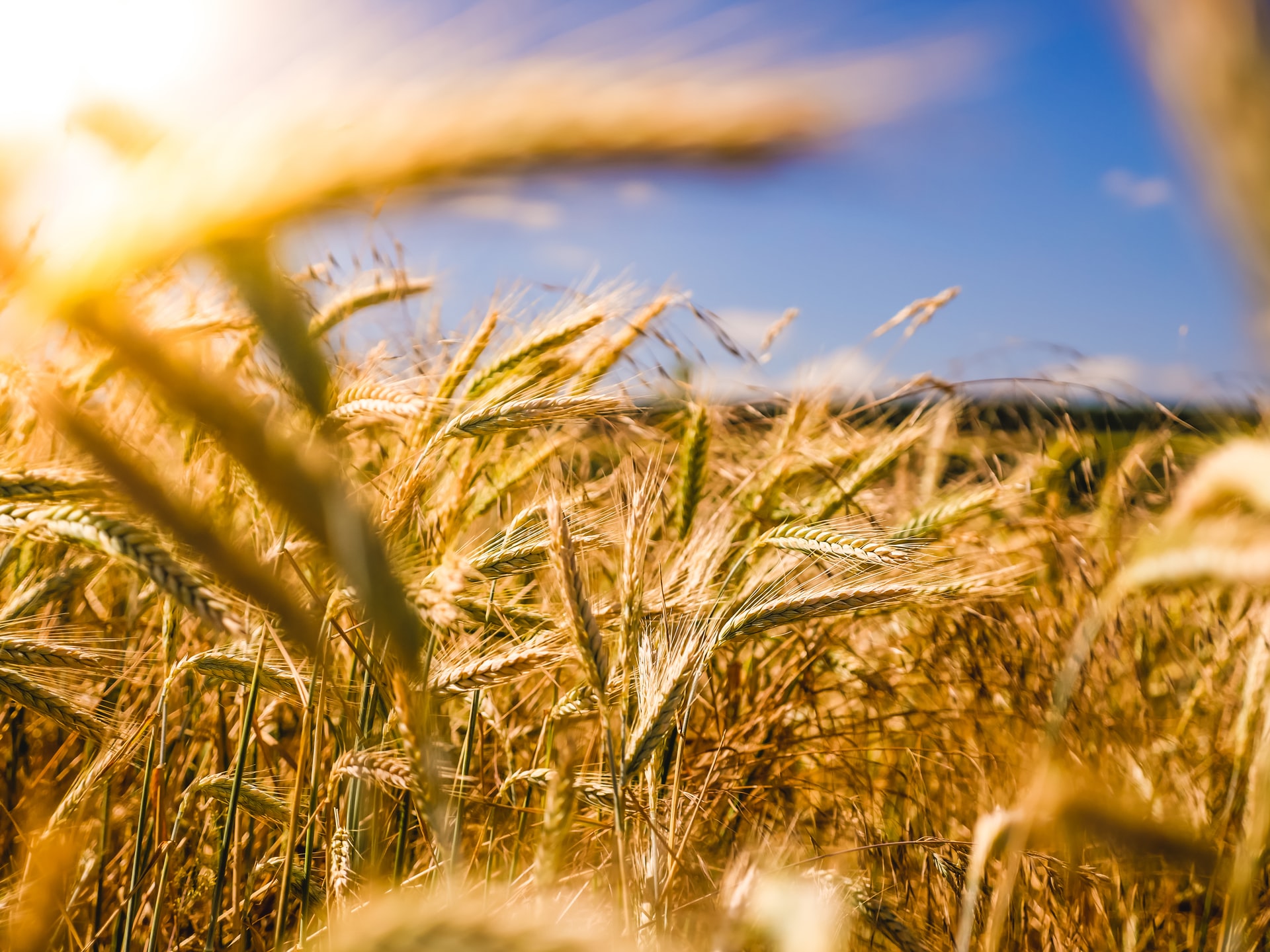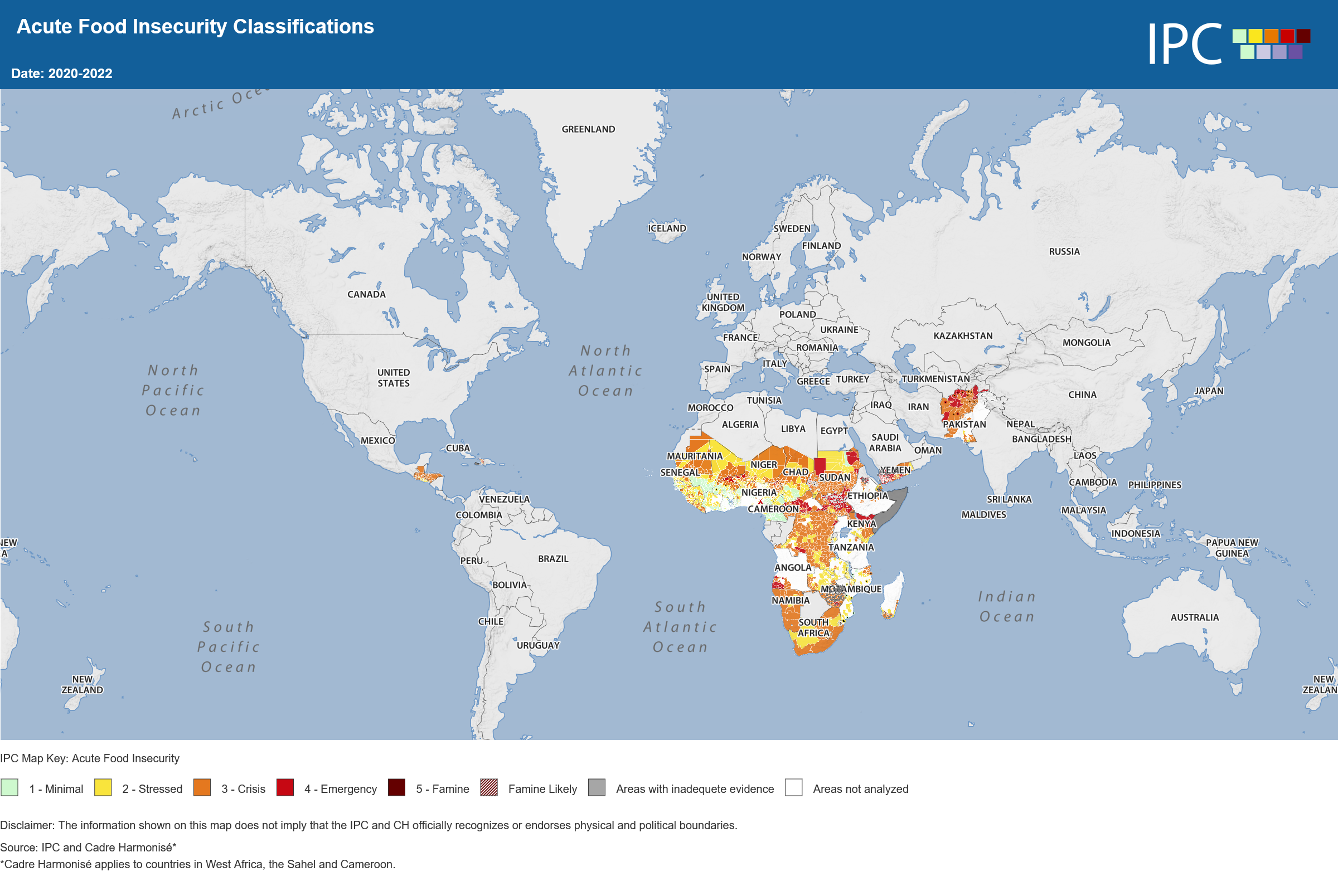July 01, 2022

Even before the Ukraine war, the World Food Programme (WFP) had warned that 2022 would be a terrible year for food security. China, the largest wheat producer declared that last year’s rains delayed planting, and this-year crop may be its worst ever. Moreover, the extreme temperatures in India, the second-largest producer, and the drought in America’s wheat belt and Europe contributed to rising food insecurity [1].
If in 2021 the global levels of hunger were alarmingly high as a consequence of the COVID-19 economic shock, they would be expected to grow further in 2022, because of the repercussions of the Ukraine war on food, energy and fertilizer prices and supplies.
The most at-risk economies are the undeveloped ones, such as the African and the Middle-East countries, which have been struggling to grow food because of local conflicts or economic crises and cannot afford a further recession [2].

THE WORLD IS THIRSTY
According to NASA, the average global temperature on Earth has already increased by at least 1.1° Celsius [3]. As a consequence, the number of extreme events such as storms, heatwaves, floods or forest fires has raised, coming along with all the related damages to urban and natural ecosystems.
Food production is highly dependent on the climate. Climate change could make it difficult to grow crops, raise animals, and catch fish. Different temperatures and more frequent extreme events harm plants, reduce yields and bring always new invasive species. Up to now, the most concerning issue is chronic water scarcity, especially in semi-arid and arid areas where water is likely to become limited and farmers will deal with drought [4]. In Italy, we are having a real taste of drought. The Po river bed is quite empty, and summer is not started yet. On the other coast of the Mediterranean Sea, however, countries have experienced water scarcity for a long time
THE COVID AFTERMATH
COVID-19 caused an immediate break in the global transportation systems and in all the connections among countries. At the end of 2020, it was clear that those that would have suffered the most from this crisis would have been Middle-East and Africa. There, a stop in trading would have meant further physical and ideological walls.
It is critical that commercial trade continues to flow regardless of anything else taking place around it.
warned the WFP chief economist Arif Husain.
If that stops, the humanitarian work cannot happen. Quite simply, millions of people’s lives depend on the flow of trade, and the impact of disruption on people’s food security is hugely concerning. [5].
Countries with large public debt have struggled to respond to the COVID-19-induced financial crisis. In the Middle East, Yemen, Iran, Iraq, Lebanon and Syria faced severe economic problems, worsening the local food shortage. In Africa, in the Demographic Republic of Congo, Zimbabwe, Mozambique, Malawi, and the Central African Republic are the most at risk, for a total of 45.56M starving people [2].
THE WORLD BREADBASKET
For a long time, Ukraine has been named the Europe Breadbasket. Actually, Ukraine is the 8th exporter of wheat worldwide, the 1st of sunflowers and derivates, and the 4th of barley and corn. Ukraine is one of the most important players in the global agriculture market, not in Europe only [6].
Stopping the agro-food chain of Ukraine would mean threatening the global economy, and that is what is happening right now. In Ukraine, the (few) undamaged silos have been already overfilled with cereals and are just waiting to be moved abroad. However, in the Black Sea, Russian patrols and Ukrainian minefields make the course impossible for mercantile ships, and there is no humanitarian corridor going to the western border.
While Europe and Turkey have been trying to unlock this situation for days, on June 3rd, Macky Sall, the President of the African Union, met the Russian President asking to guarantee food and fertilizers in Africa to avoid a catastrophe. There, most of the countries there have not already overcome the COVID economic slowdown and a further rise in the cost of food could be fatal for them [7].
A falling food production, broken commerce and tons of grains trapped in the warzone waiting to go bad is a lot to deal with.
If developed countries can survive this series of shots, the same might not happen for developing and undeveloped ones, where people are paying for food and water scarcity with their own life. Releasing Ukrainian food can be the first achievement, but it cannot be the only one. Cooperation and investments must be ensured to save lives and fight climate change [2].
Cover and preview photo: Free-source photo by Raphael Rychetsky on Unsplash (Meisenheim, Germany, 8 July 2017)
Bibliography:
[1] The Economist. (2022, May 20). The coming food catastrophe. https://www.economist.com/leaders/2022/05/19/the-coming-food-catastrophe
[2] World Food Programme. (2022). Global Report on Food Crises. https://docs.wfp.org/api/documents/WFP-0000138913/download/
[3] World of Change: Global Temperatures. (n.d.). https://earthobservatory.nasa.gov/world-of-change/decadaltemp.php
[4] Climate Impacts on Agriculture and Food Supply | Climate Change Impacts | US EPA. (n.d.). https://climatechange.chicago.gov/climate-impacts/climate-impacts-agriculture-and-food-supply
[5] Risk of hunger pandemic as coronavirus set to almost double acute hunger by end of 2020 | World Food Programme. (n.d.). https://www.wfp.org/stories/risk-hunger-pandemic-coronavirus-set-almost-double-acute-hunger-end-2020
[6] G. (2022, April 23). La ricca Ucraina e’ il granaio d’Europa -Dalle pallottole di Kiev alle bollette degli Italiani – Minaccia nucleare da non sottovalutare. Newsfood – Nutrimento e Nutrimente – News dal mondo Food. https://newsfood.com/dalle-pallottole-di-kiev-alle-bollette-degli-italiani-questo-e-leffetto-certo-dellattacco-di-putin-allucraina/
[7] R. (2022b, June 17). Rassegna stampa africana: l’incontro tra Macky Sall e Putin e le tensioni nella regione dei Grandi laghi. Affari Internazionali – Politica ed economia estera. https://www.affarinternazionali.it/rassegna-stampa-africana-lincontro-tra-macky-sall-e-putin-e-le-tensioni-nella-regione-dei-grandi-laghi/


